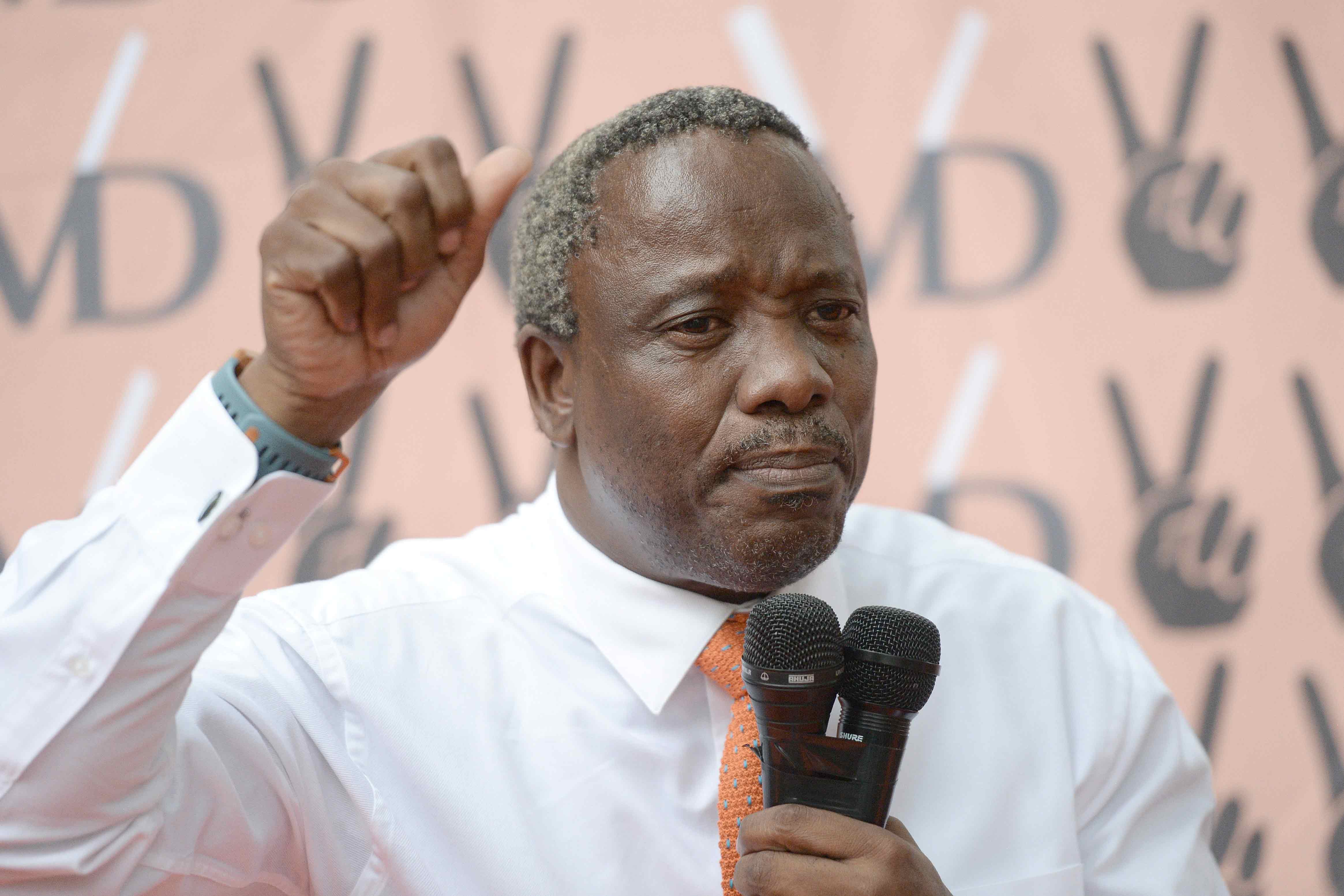While there are concerns in Botswana’s opposition circles that nothing much can be expected from a mission led by Zimbabwe, the leader of the mission has dismissed the apprehension as the utterances of delusional people. TEFO PHEAGE reports
A row has ensued over the credibility of the SADC Electoral Observation Mission (SEOM) to Botswana for the upcoming elections that are scheduled for 23 October, The Botswana Gazette has established.
In this tumult, Zimbabwe – which is the chair of the mission – has come in for the most opprobrious criticism.
The mission chairperson, Zimbabwean’s Foreign Affairs Minister, General Sibusiso Moyo is the one who announced the Zimbabwean power takeover on national television dressed in military fatigues where he emphasised that the coup was targeting the ‘criminals’ surrounding Mugabe not Mugabe himself.
The president of the Botswana Movement for Democracy, advocate Sydney Pilane has poured scorn on the composition of the mission, saying nothing good can ever come from a mission led by Zimbabwe and with Lesotho and Eswatini as members.
“What should we expect from a mission led by Zimbabwe? The country has never held credible elections. What can you expect from Eswatini? The kingdom does not hold democratic elections and should never be allowed space on matters they don’t value. How can SADC rely on judgment from these states. The less said about Lesotho, the better. Their elections are always a shambles,” Pilane charged further adding that their inclusion undermine the credibility of observer missions.
In an interview with this publication yesterday, Pilane said Botswana deserved better than what was currently on the observer mission. “They do not know anything about high standards,” he asserted. “We can also assume or argue that they may subject our country to what their countries are or have been.”
In 2018, former associate professor of journalism at the University of Swaziland who has also been the Head of the Department of Media Studies at the University of Botswana, Richard Rooney, published a study titled Organised Certainty in which he concluded that Swaziland’s last national elections in 2013 were “not democratic” and that “the political system exists to keep the ruling absolute monarchy in power”.
The Zimbabwean elections have always been surrounded by protests, intimidation and killings. In 2013, Botswana’s head of mission to elections in that country, the late Mompati Merafhe, attracted attention when he labelled the Zimbabwean elections “a circus”. SADC then had taken a position that the elections had been “peaceful and free”.
But it is not only Lesotho, Zimbabwe and Eswatini which are in the mix, there being several SADC member states whose incumbent government are notorious for meddling and interfering with poll numbers.
Zimbabwe government rubbishes protest
Responding to these concerns, a spokesman for the Zimbabwean government, George Charamba, told this publication in an interview yesterday that “there are people who have a tendency to speak about things they do not know or understand”.
“SADC has its guidelines through the Organ on Politics, Defence and Security Cooperation, and they clearly stipulate how observer missions are run. The delegated people do not report to the Government of Zimbabwe but to SADC from where they have been delegated,” Charamba said and proceeded to described as “rubbish” views that Zimbabwe had never held credible elections. “Those are just assumptions of delusional people,” he added.
IEC responds
For its part, the Independent Electoral Commission (IEC) says it does not have any relations with the SADC observer mission, except to welcome them into the country. “We give them space and do not interfere with their work,” Osupile Maroba noted in an interview. “It is our hope and trust that they will do their work in the spirit of unity, honesty and integrity. We will be waiting for their report after the elections, which they will hand to us.”
Did SADC have options?
While heads of electoral missions generally wary of stirring disputes and so adopt a conservative approach, the head of the SADC observer mission, Dr Sibusizo Moyo, who is the Zimbabwe’s Minister of Foreign Affairs and International Trade, drew Pilane’s attention to the regional body’s laid down guidelines.
SADC has 16 members, namely Angola, Botswana, the Comoros, the DRC, Eswatini, Lesotho, Madagascar, Malawi, Mauritius, Mozambique, Namibia, Seychelles, South Africa, Tanzania, Zambia and Zimbabwe. Four of these, Botswana, Mauritius, Mozambique and Namibia, are holding elections this year.
The SADC Organ on Politics, Defence and Security Cooperation is currently led by Zimbabwe’s president, Emmerson Mnangagwa. This position means that Zimbabwe is responsible for deploying both short-term and long-term election observation missions to the countries conducting elections.
The political role of the SADC has always been a contentious issue in the region, with many critics describing the body a “useless talk shop”. Former president Ian Khama was the body’s biggest critic, arguing that SADC had failed to address the plight of the region. He said the bloc had kept quiet in the face of economic collapse and political repression in Zimbabwe when the country was under the thumb of the late Robert Mugabe.

